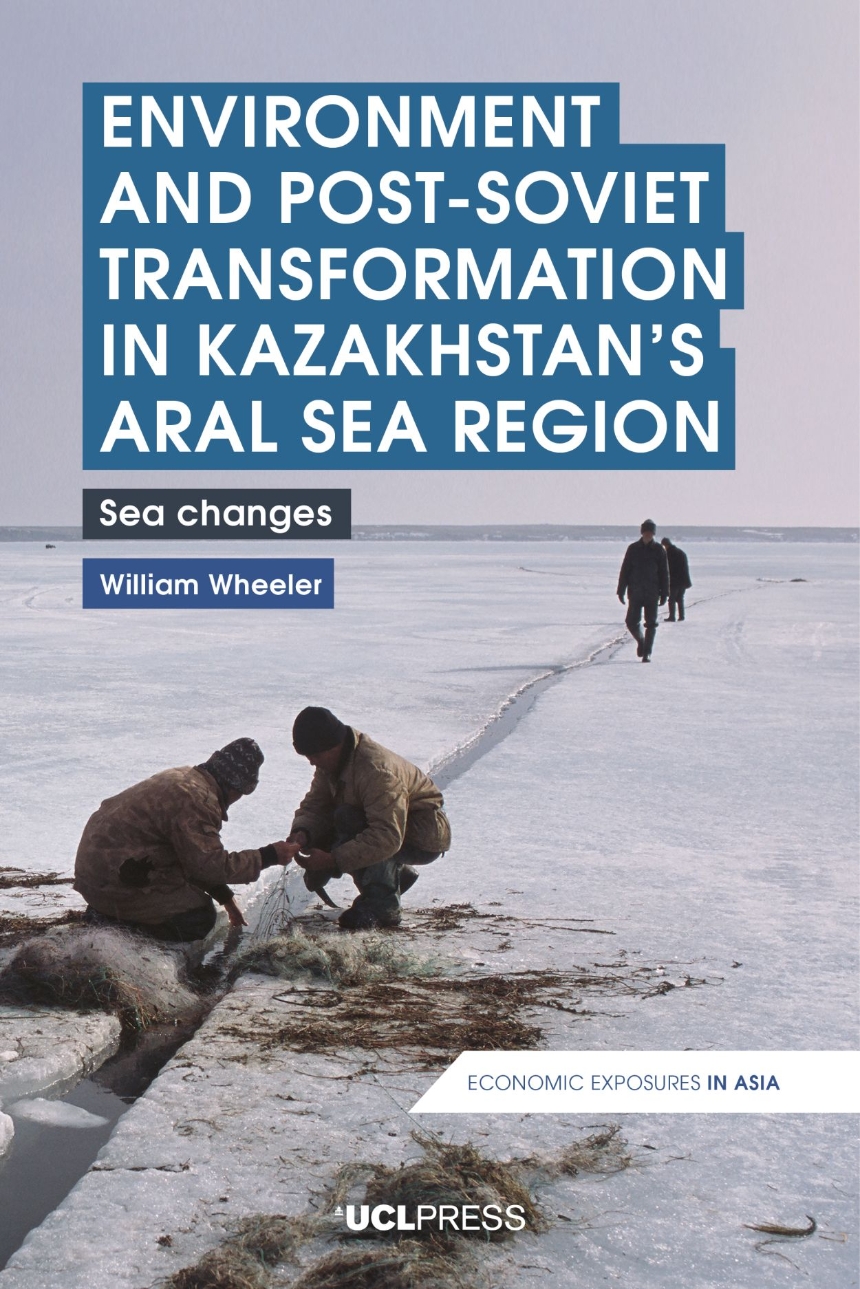9781800080348
9781800080355
Distributed for UCL Press
Environment and Post-Soviet Transformation in Kazakhstan’s Aral Sea Region
Sea Changes
Presents a political ecology of life amid overlapping environmental and political upheaval.
Once the fourth largest lake in the world, Kazakhstan’s Aral Sea dried into an unrecognizable fraction of its size during a period of dramatic political change. Through the experiences of local fisheries across the rise and fall of the Soviet Union, Environment and Post-Soviet Transformation in Kazakhstan’s Aral Sea Region explores the diverse ways people in different socioeconomic contexts understand environmental change. In this book, William Wheeler offers a rigorous political ecology of life amid overlapping upheavals, attentive both to the legacies of Sovietism and the possibilities of transnationalism.
Once the fourth largest lake in the world, Kazakhstan’s Aral Sea dried into an unrecognizable fraction of its size during a period of dramatic political change. Through the experiences of local fisheries across the rise and fall of the Soviet Union, Environment and Post-Soviet Transformation in Kazakhstan’s Aral Sea Region explores the diverse ways people in different socioeconomic contexts understand environmental change. In this book, William Wheeler offers a rigorous political ecology of life amid overlapping upheavals, attentive both to the legacies of Sovietism and the possibilities of transnationalism.
Table of Contents
List of figures Acknowledgements Note on transliteration Glossary and abbreviations Maps Introduction 1.The Aral Sea and the modernisation of Central Asia: A century of catastrophes 2.Seeing like a bureaucrat: Problems of living standards and employment 3.Ocean fish, state socialism and nostalgia in Aral’sk 4.Continuity and rupture in Aral fishing villages 5.From Soviet ruins: Flounder, the Kökaral dam, and the return of the Small Aral Sea 6.Zander and social change in Bögen 7.Aral’sk today: Fish, money, ekologiia Conclusion Appendix Index

